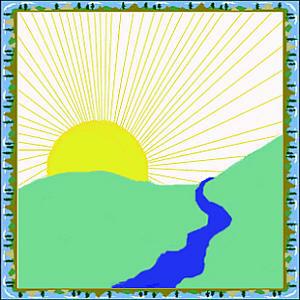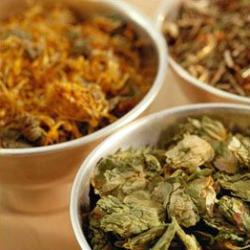Naturopathy
- Details

Naturopathy, or naturopathic medicine, is a system of medicine based on the healing power of nature. Naturopathy is a holistic system, meaning that naturopathic doctors (N.D.s) strive to find the cause of disease by understanding the patient as a totality of body, mind, and spirit. Most N.D.s use a wide variety of therapies and techniques (such as nutrition, herbal medicine, homeopathy, and acupuncture).
There are two areas of focus in naturopathy: one is supporting the body's own healing abilities, and the other is empowering individuals to make lifestyle changes necessary for the best possible health. While N.D.s treat both short bouts of illness and chronic conditions, their emphasis is on prevention of disease and patient education.
The history of naturopathy
 The modern form of naturopathy can be traced to 18th and 19th century natural healing systems. Such systems include hydrotherapy (water therapy), which was popular in Germany and nature cure, developed in Austria, and based on the use of food, air, light, water, and herbs to treat illness.
The modern form of naturopathy can be traced to 18th and 19th century natural healing systems. Such systems include hydrotherapy (water therapy), which was popular in Germany and nature cure, developed in Austria, and based on the use of food, air, light, water, and herbs to treat illness.
Benjamin Lust, a German immigrant, first introduced naturopathy to the United States in 1902 when he founded the American School of Naturopathy. The school emphasized the use of natural cures, proper bowel habits, and good hygiene as the essential tools for health. This was the first time that dietary principles, like increasing fiber intake and minimizing saturated fats, became popular.
In the mid-1920s to 1940, while allopathic medical training and pharmaceuticals and medical technologies gained notoriety, the use of naturopathic medicine declined. It was not until the 1960s that naturopathic-style holistic medicine regained popularity. Today, naturopaths are licensed primary care providers in many states offering information and advice on a variety of alternative and complementary therapies, including homeopathy, vitamin and mineral supplements, Traditional Chinese Medicine, relaxation techniques, and herbal remedies.
What should I expect from a visit to a naturopath?
 A visit to a Naturopathic doctor, or N.D., will be similar to a visit to your family doctor. Your first visit may take more than an hour. During this time, a very thorough history is taken, including questions about diet, lifestyle, stress, and environmental exposures. Next, the N.D. will perform an appropriate physical examination, which may require laboratory tests.
A visit to a Naturopathic doctor, or N.D., will be similar to a visit to your family doctor. Your first visit may take more than an hour. During this time, a very thorough history is taken, including questions about diet, lifestyle, stress, and environmental exposures. Next, the N.D. will perform an appropriate physical examination, which may require laboratory tests.
In addition to conventional tests, N.D.s may use unique laboratory techniques such as the Comprehensive Digestive Stool Analysis (CDSA). This technique allows naturopaths to assess the digestive process as well as specific nutrient absorption, amongst other things.
Naturopathic doctors treat the whole person, which means they consider a variety of factors before they diagnose and treat an illness. Factors an N.D. might consider in making a diagnosis include your mental, emotional, and spiritual state, your diet, your family history (whether or not your parents or grandparents suffer [or suffered] from the same condition), your environment, and your lifestyle.
Some of the more common treatments used by a naturopath include:
-
Nutritional counseling
-
Herbal medicine
-
Homeopathic medicine
-
Acupuncture
-
Hydrotherapy (Water therapy) - Therapies in this category include drinking natural spring water, taking baths, and exercising in water, all of which are thought to stimulate and support healing and strengthen the immune system.
-
Physical Medicine - This natural approach to healing involves using touch, hot and cold compresses, electric currents, and sound waves to manipulate the muscles, bones, and spine.
-
Detoxification - This therapy removes toxins from the body by using techniques such as fasting, enemas, and drinking water in large amounts.
-
Spirituality - Personal spiritual development is encouraged as an important part of an overall health program.
-
Lifestyle and Psychological Counseling - An N.D. may use hypnosis, guided imagery, or other counseling methods as part of a treatment plan.

Naturopaths consider patients to be partners in their healthcare, so you may be asked to make lifestyle changes (such as changing your sleeping, eating, and exercise habits).
What illnesses and conditions respond well to naturopathy?
Because naturopaths successfully combine so many therapies it is difficult to single out specific illnesses for which naturopathy is recommended. In fact, naturopaths treat both acute and chronic conditions from arthritis to ear infections (otitis media) to HIV to asthma to congestive heart failure to hepatitis. N.D.s treat the whole person (rather than simply treating a disease or its symptoms), striving to maintain a balanced state of good health in their patients. Because of this holistic approach, chronic conditions may be particularly suited to an N.D.'s care.
Is there anything I should look out for?
Be sure to share the details of your treatment with your medical doctor (M.D) and let your N.D. know of any conventional medications you are taking. Some treatments can negatively interact with each other, and your healthcare practitioners will be better able to treat you if they are aware of every therapy that you are using.
High doses of nutrients and herbs should be administered only by an experienced practitioner, due to the possibility of toxicities and drug-herb interactions. Please see the monographs on individual herbs and supplements for detailed information regarding specific substances. Significant dietary changes can also undermine good health (especially in the very young, the elderly, and those with certain medical conditions, such as diabetes).
Source Here
Liked this article? Dive deeper into personal growth and wellness! Check out CrystalWind.ca for spiritual wisdom or explore AromaWorx.ca for natural well-being tips. Spread the positivity—share this with friends on their happiness journey!
Let’s Chat! Drop Your Thoughts Below! ![]()
Disclaimer Health
All post and information provided within this blog is for educational and informational purposes only, and is not to be construed as medical advice or instruction. No action should be taken solely on the contents of this website. Please consult with your healthcare professional before making any dietary or lifestyle changes or taking supplements that may interfere with medications. Any products or information discussed are not intended to diagnose, prevent, treat or cure any illness, disease or lifestyle. Please consult your physician or a qualified health professional on any matters regarding your health and wellbeing or on any opinions expressed within this website.
Latest Articles

Imagine a world of inspiration and healing, free for all—made possible by YOU!
Donate Now—Ignite the Magic at CrystalWind.ca!

Epilepsy - Finding A Cure
Your donation can make a difference!
Help us find a cure – donate now!
Unlock Your Light: Join Lightworkers Worldwide on CrystalWind.ca!
Follow Us!
Featured This Month
The Vine: September 2nd - September 29th
The Autumnal Equinox ( Alban Elfed ) Celtic Symbol : The White Swan Read more
Peridot: The Healer's Stone
Peridot has been used as a Power Stone for centuries. Peridot fosters emotio... Read more
Sun in Virgo
An Overview of Sun Sign Characteristics for Virgo The ruler of Virgo is Mer... Read more
Watermelon Tourmaline
Synonym: Rainbow Tourmaline The watermelon tourmaline is a rare variety t... Read more
Crystals for Virgo
During harvest time, when the seasons begin to transition from summer to fall,... Read more
Mabon in Modern Times: Fresh Takes on the Au…
The Mabon season begins somewhere around the 21st-22nd of September and cont... Read more
Mabon Magic: Ideas For Fall Decoration And R…
Welcome (almost!) to Fall! We’re turning the Great Wheel once again, toward ... Read more
Virgo Mythology
The Virgo Myth In all of constellation mythology, few legends are as misund... Read more













































